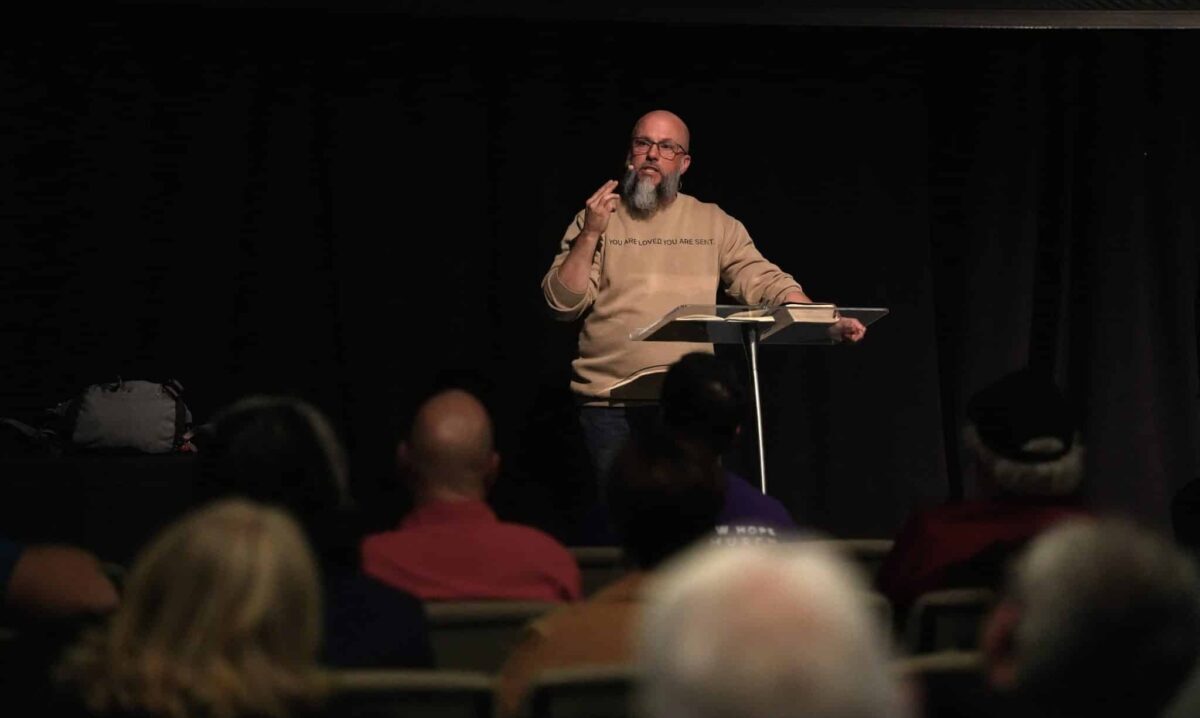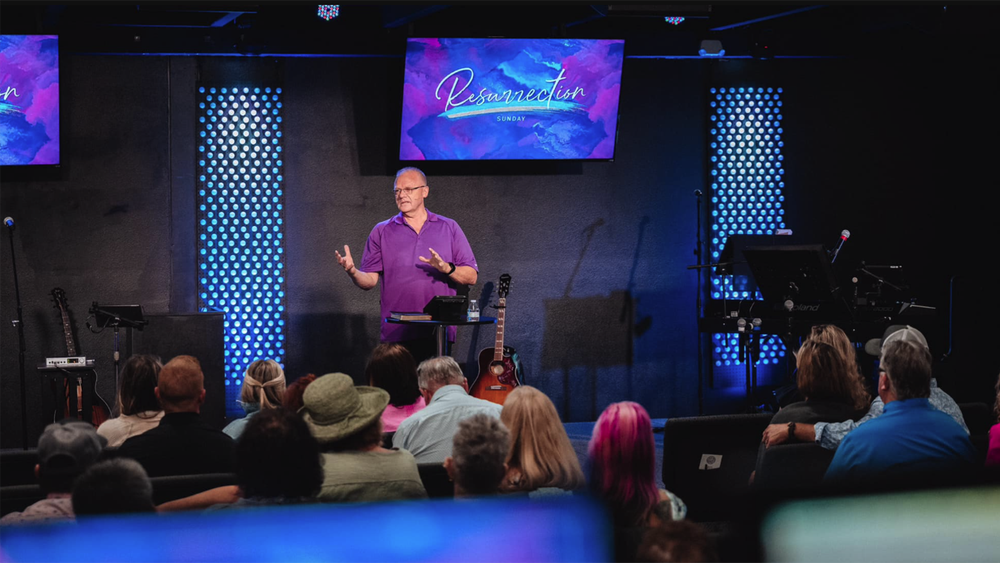Baptist World Aid, the relief and development ministry of the Baptist World Alliance, in collaboration with Hungarian Baptist Aid launched the BWA International Humanitarian Action and Development Intensive Course July 5-7 in Lagos, Nigeria.
The course was offered immediately prior to the BWA annual gathering and attracted 69 participants representing 19 countries. Twenty-eight percent were women, and 15 people were from French-speaking nations.
Delegates included Baptist leaders involved in humanitarian assistance, social service and/or development work in their respective conventions and unions.
The goal of the Humanitarian Action Course is to build a network of empowered and trained resource persons from BWA member conventions to respond to disasters and implement transformative community development projects in their communities.
The course was conceived as a response to the myriad and long-running man-made conflicts around the world; the documented disproportional impact of the climate crisis on already vulnerable communities; the unprecedented numbers of displaced persons; and the increasing emphasis on the importance of localization within the humanitarian aid and development sector.
Thirteen million BWA Baptists — 25% of all Baptists — experience significant levels of vulnerability. The course was designed and scheduled for July 2024 to address this current reality.
The church has a history of engaging in compassionate ministry and is uniquely positioned to address the vulnerability within their respective communities. Though current circumstances are challenging, course organizers see them as an opportunity for the church to demonstrate love for God and the community.
“It is important for our churches to see themselves as agents of development and transformational change, and not simply a distribution site for emergency resources,” said Marsha Scipio, BWAid director.
Global impact
Course participants learned climate crises disproportionately impact the most vulnerable, there is an increasing number of displaced persons because of violent conflict, and structural economic challenges contribute to poverty. These factors impact Baptist communities across the globe.
The annual BWA vulnerability index combines four factors to assess levels of vulnerability — hunger, livelihood, violent conflict and religious freedom challenges.
The index demonstrates out of the top 10 countries with the most vulnerable Baptists, nine are on the continent of Africa, with the Central African Republic leading the way. Five leaders from the Baptist conventions in the Central African Republic participated in the course.
Furthermore, Central African Republic President Faustin-Archange Touadéra attended the BWA annual gathering, holding meetings with BWA President Tomás Mackey and General Secretary Elijah Brown to discuss how BWA may partner with the Central African Republic to address these issues.
Course content
The three-day intensive course covered topics ranging from the theology of humanitarian assistance to supporting refugees and internally displaced persons amid complex humanitarian crises.
Participants also were introduced to international accountability and compliance standards, United Nations sustainable development goals and best practices, and tools for project implementation.
Pivotal to the substantive course content, participants were divided intentionally into working groups around tables to promote networking and shared learning experiences.
Faculty from African countries provided instruction on climate awareness, environmental sustainability practices particularly in agriculture, mental wellness for humanitarian aid workers, and finance options for churches to develop and sustain social service ministries.
Polisi Kivava from the Democratic Republic of the Congo and Canadian Baptist Ministries, Dickinson Maldonado with Buckner International in Kenya, Samuel Reeves from the Liberia Baptist Missionary & Educational Convention and Mojisola Opebiyi with Bowen Microfinance Bank in Nigeria were among the instructors.
In addition to the 10 hours of class time, students had to complete reading assignments, develop and pitch a project proposal to a panel of faculty evaluators, and submit a written assignment.
Responses to the course
“This Humanitarian Action Course is about joining our African brothers and sisters and, together, approaching humanitarian aid on one hand according to the calling of God and the other hand to do it with expertise,” Bela Szilágyi, course faculty and president of Hungarian Baptist Aid, said.
Adeoye Gbenga Adigun, a course participant from Nigeria, echoed this sentiment at the conclusion of the course, “This course improved my knowledge, and it also enabled me to understand that we can do humanitarian work without losing our faith.”
“The course was a masterclass in participatory learning, engaging group activities and insightful presentations,” Amy Badger with the Ghana Baptist Convention said. “From our team interactions, we observed that the contexts of the challenges our countries faced were very similar.
“For instance, mining activities at the copper belt of Zambia, illegal gold mining in Ghana and oil spillage in the open seas in the Niger Delta regions of Nigeria variously cause water and environmental pollution, which contributes to drought, flooding, etc., and is a demonstration of the social injustice that exists when we talk about the consequences of the climate crisis,” she continued.
“I really appreciate my teammates for their collaborative efforts and for giving me the opportunity to be heard and to speak at the table of men,” Badger added.
Organizers hoped this type of peer learning would inspire coordinated actions to bring sustainable change to communities.
“The course has given me the opportunity to connect with colleagues and industry experts, potentially leading to new collaborations and opportunities. It has also increased my confidence in my abilities, allowing me to take on new challenges and responsibilities,” Charlotte Nkoom, of Ghana, said.
Continuing education
Instructors came from the Baptist Forum for Aid and Development, a global network of Baptist aid and development ministries and agencies, including Baptist World Aid Australia, the Baptist General Association of Virginia, Buckner International, Canadian Baptist Ministries and Hungarian Baptist Aid, the latter providing significant support.
Forum members American Baptist International Ministries, BMS World Mission, Cooperative Baptist Fellowship, Hungarian Baptist Aid and Texans on Mission were among course sponsors.
Students earned three continuing education units and a certificate in humanitarian action from Baylor University’s Truett Theological Seminary. These continuing education units may be used toward the completion of a certificate in ministry from Truett Seminary.
“BWA partners with Baylor University and Truett Seminary to provide practical training for Baptists ministering on the frontlines of disaster and development. This collaboration impacts persons in more than a dozen countries to raise a generation of change agents entering into the wounds of humanity with the healing hope of Jesus Christ,” BWA General Secretary Elijah Brown said.
“Building upon 100 years of commitment to empower Baptist conventions, unions and churches to provide holistic gospel-witness in their communities through aid, relief and community development, we celebrate this achievement with our participants,” Scipio stated.
“We know there is much more work to be done toward transformational development that will reverse the exceeding high poverty rates and vulnerability in the countries and communities in which many of the course participants serve. Nevertheless, we are humbled and grateful to God for the privilege to plant seeds we believe will flourish.
“We are challenged and invigorated by the opportunity to learn and grow with our partners in Africa and look forward to further collaborative efforts that will transform communities.”
EDITOR’S NOTE — This story was written by BWA staff and originally published by Baptist Standard.










